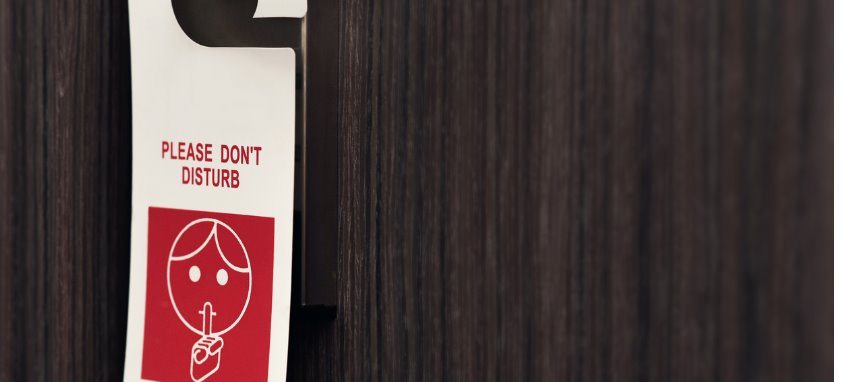These are disturbing times. A few days before Christmas, four Walt Disney World hotels in Orlando replaced their “do not disturb” signs with ones that read “room occupied.” A Disney employee is now required to enter every room at least once every 24 hours. Disney told The New York Times it plans to make the same change at all Disney World resorts, as well as at Disneyland properties in Anaheim, California.
“The hotel and staff reserve the right to enter your room for any purposes, including, but not limited to, performing maintenance and repairs or checking on the safety and security of guests and property,” reads Disney’s new guest information pack.
Hilton Hotels & Resorts had already updated its own “do not disturb” policy. If that sign remains hanging on a guest room door more than 24 consecutive hours, Hilton housekeeping must advise security or a manager.
“The clock starts ticking when a team member first notices the ‘do not disturb [sign],’’’ Nigel Glennie, Hilton vice president for corporate communications, said in a statement. Flagging the room for attention will help inform management, but action will be taken on a case-by-case basis, he said. “This guidance was provided to help properties protect guest privacy, but also manage suspicious activity and any concerns about a guest’s welfare,” Glennie added.
The website LoyaltyLobby.com, which tracks loyalty programs, reported that extended use of a “do not disturb” sign and requesting specific rooms will be considered suspicious behavior by Hilton.
Neither Hilton nor Disney will say the changes are the result of the massacre of concertgoers in Las Vegas on Oct. 1, when Stephen Paddock opened fire from his suite on the 32nd floor of Mandalay Bay Resort and Casino. He had checked in three days earlier, and kept a “do not disturb” sign on his door for his entire stay, during which he amassed his arsenal of firearms.
Shortly after that mass shooting, Steve Wynn, chief executive of Wynn Las Vegas, told Fox News he had begun instituting a counterterrorism program in his hotels and casinos in 2015. “If a room goes on ‘do not disturb’ for more than 12 hours, we investigate,” he said. Paddock’s behavior before he began firing “would have triggered a whole bunch of alarms here,” Wynn said.



